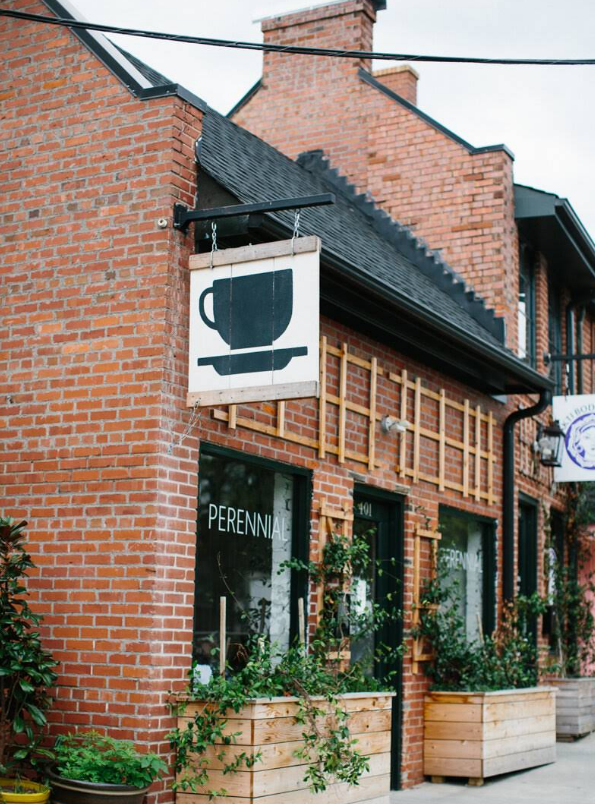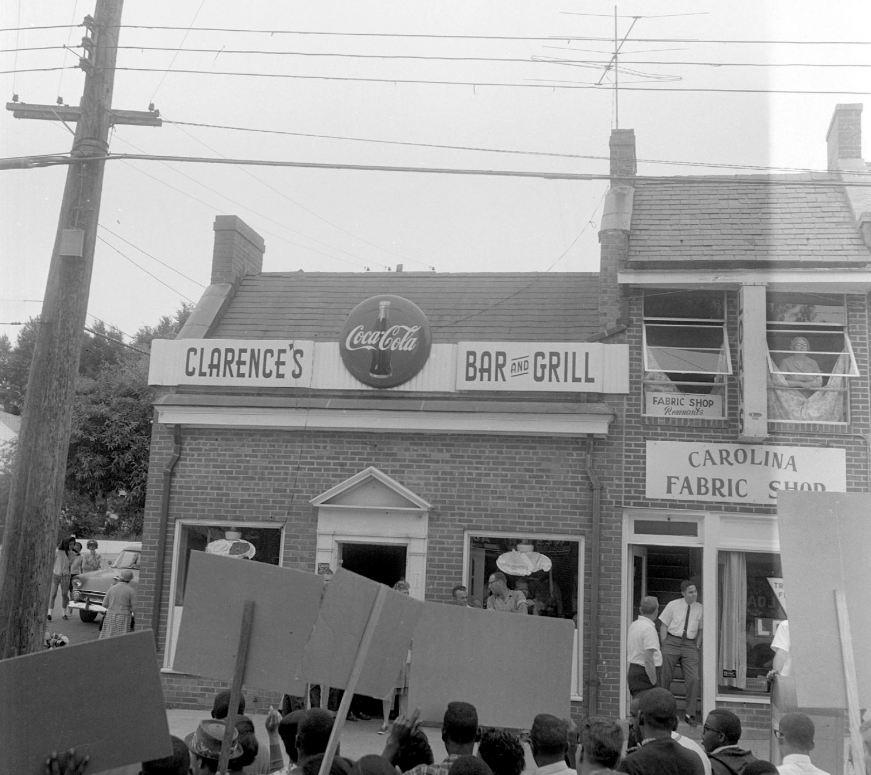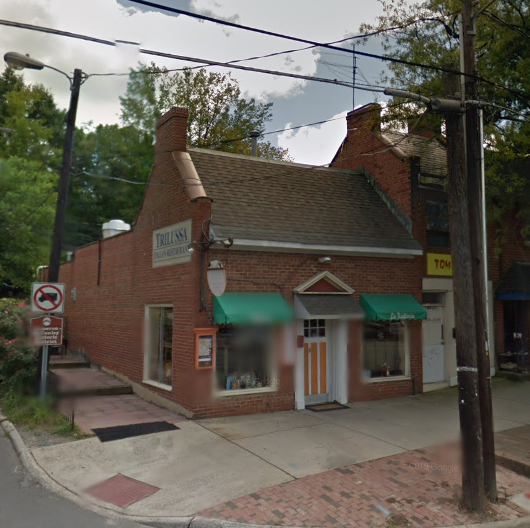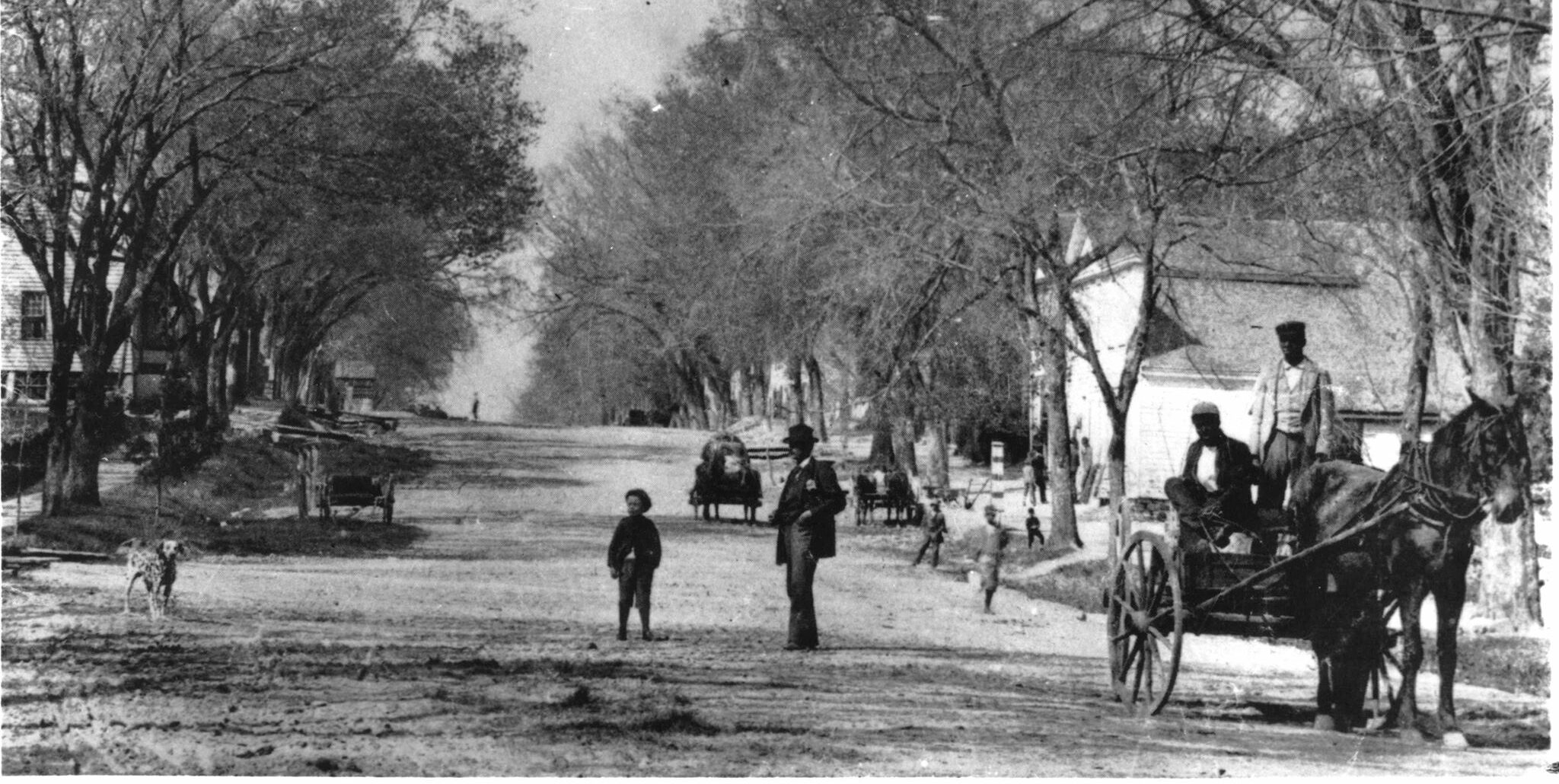Perennial / Clarence’s
On a block of West Franklin Street that has seen generations of change, 401 W. Franklin Street stands out as a space where community and culture converge! Once part of a racially segregated town center and the site of courageous civil rights protests, this building has evolved into today’s Perennial Cafe – a place that now cultivates herbs and thoughtful conversations.
Perennial opened in late 2017 and was located at 403 W. Franklin St. until early 2019, when it relocated to 401. In 2020, Perennial closed during the pandemic. It reopened in 2021 under new ownership, notably as a flagship cafe of Carrboro Coffee Roasters.

The owner of Perennial, Scott Conary, said that the goal of Perennial is to elevate the coffee experience and offer both high quality expected cafe beverages and also experimental drinks that show elevated preparation and ingredients. Perennial takes its ingredients and craft seriously, all coming back to coffee and tea as the base of its drinks.
“We grow our own herbs in the back for many of our preparations,” Conary said.1
Historically, 401 W. Franklin St. was the West Franklin Street Luncheonette in the 1950s, which was renamed to Clarence’s Bar & Grill in 1962, one of many Chapel Hill restaurants targeted during the civil rights protests of the early 1960s. Inspired by the 1960 Greensboro sit-ins, local Black students from Lincoln High School (known as the Chapel Hill 9) began nonviolent protests against segregation in Chapel Hill.
Clarence’s became one of the most well-known sites of resistance to these protests. Numerous demonstrations took place outside the restaurant in 1963 and 1964, when the business remained segregated. The owner, Clarence Gray, responded violently—hosing down protestors, hanging Confederate flags throughout the restaurant, and reportedly throwing urine and feces at demonstrators. Even after the passage of the Civil Rights Act of 1964, Clarence’s illegally refused service to local Black students. Despite the abuse they faced, protestors maintained their commitment to nonviolence throughout the campaign.
These demonstrations were part of a larger, sustained movement to desegregate public accommodations in Chapel Hill and helped shape the town’s identity as a site of student activism and civic resistance.
For more on protests around Franklin Street at that time: https://exhibits.lib.unc.edu/exhibits/show/protest/sitin-essay


In the 1970s, Clarence’s became the Cockney Pride Tavern, and by 1988 it was the Roman Wings Tavern.

During this time, the building was still owned by the Gray family; they sold the building in 1993 and it became the New Orleans Cookery. Following this, the location was home to an Italian restaurant called Trilussa la Trattoria, which was popular locally and was known for its cozy atmosphere.

Between 2012 and 2014, this business changed to a restaurant called Mina’s, which was there for only around two years before it switched again to a Cuban restaurant called Cuban Revolution Express, which directly preceded the arrival of Perennial.



Notes
1 Scott Conary, email to author, March 26, 2025.
2 “401 W. Franklin St.,” Open Orange, accessed March 8, 2025, https://openorangenc.org/buildings/401-w-franklin-st
Resources
Open Orange. “401 W. FRANKLIN ST. | Open Orange.” Accessed March 8, 2025. https://openorangenc.org/buildings/401-w-franklin-st.
UNC Libraries. “Integration Sit-Ins · I Raised My Hand To Volunteer.” Accessed April 2, 2025. https://exhibits.lib.unc.edu/exhibits/show/protest/sitin-essay.

